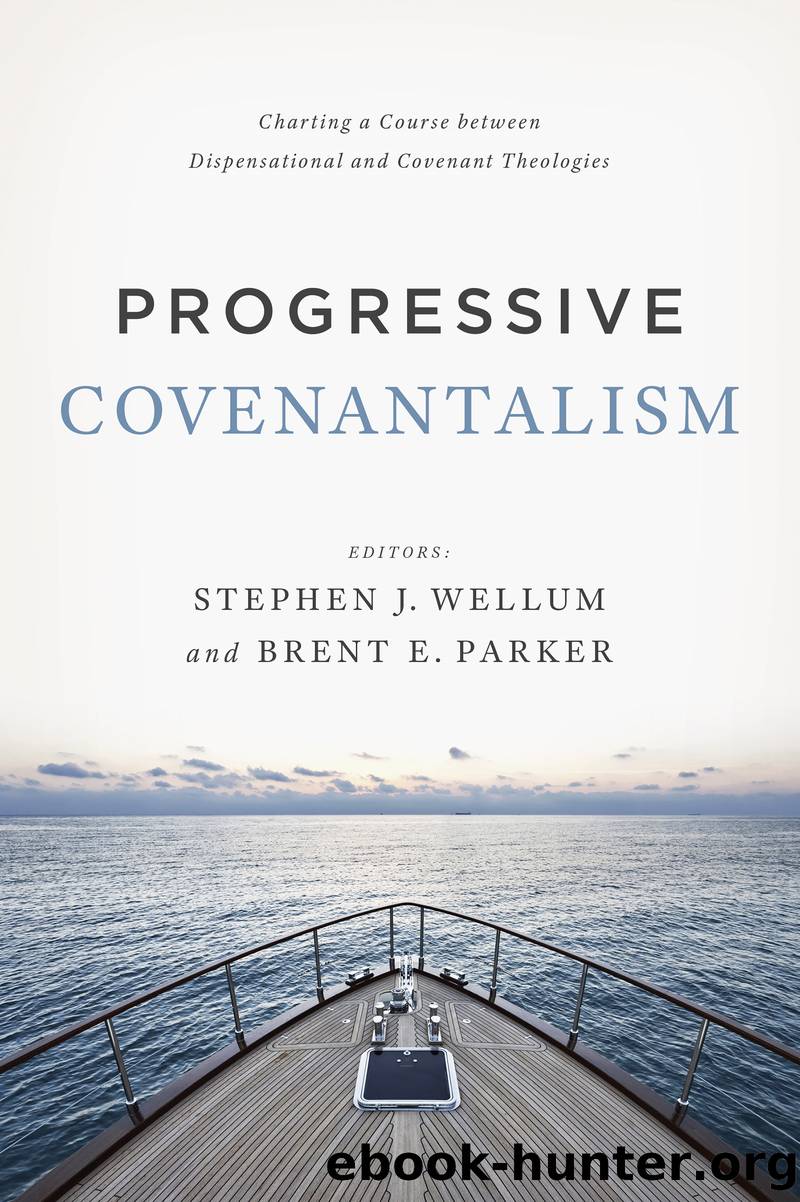Progressive Covenantalism by Wellum Stephen J.;Parker Brent E.; & Brent E. Parker

Author:Wellum, Stephen J.;Parker, Brent E.; & Brent E. Parker
Language: eng
Format: epub
Tags: Religion/Christian Theology/Systematic
Publisher: B&H Publishing Group
Published: 2016-04-15T00:00:00+00:00
Chapter 8
Progressive Covenantalism and the Doing of Ethics
Stephen J. Wellum
How should Christians apply the whole Bible as our ethical standard? Today this question is important for at least two reasons: First, in a growing secular and pluralistic age, we need to articulate Godâs moral standards as necessary, good, and objectively true. Second, in response to various unbelieving critics, we need to demonstrate that Scriptureâs ethical teaching is consistent across the canon because it is grounded in Godâs unchanging nature and will.
Covenant theology has sought to do ethics and establish the basis for moral law by following the venerable tradition of dividing the Mosaic law into three parts: moral, civil, and ceremonial.467 With the coming of Christ, the lawâs civil and ceremonial parts are now fulfilled and abrogated, yet Godâs eternal moral law as revealed in the Decalogue remains unchanged.468 A direct equation is made between the Decalogue and eternal moral law469 and a general hermeneutical rule is followed: unless the NT explicitly modifies or abrogates the Mosaic law (as in the ceremonial and civil parts), it is still in force today. This rule becomes the principle by which moral law is established across the canon.
There is much to commend about this approach, and it is important not to exaggerate the differences between progressive covenantalism and covenant theology in doing ethics. In the end, both views arrive at similar conclusions regarding Godâs moral demands today. However, the difference lies in how we arrive at our conclusions given progressive covenantalismâs rejection of the tripartite distinction of the law as the principle by which moral law is biblically established. This difference is also illustrated in the ongoing debate over the present-day application of the Sabbath commandâa debate that functions as a crucial test case for how the biblical covenants are âput togetherâ and moral law is established.470
In this chapter I will outline in five steps how progressive covenantalism seeks to determine what the moral law is and thus establish the biblical norm for doing ethics. Given our rejection of the tripartite distinction, what is our alternative approach? How do we escape the charge of being antinomian? How do we establish Godâs moral norms, especially in our secular and pluralistic age, as those who now live under the new covenant?
1. All Scripture Is Authoritative and Thus Provides the Norm for Christian Ethics
What is our standard for ethics? How do we establish moral norms? The simple answer: all of Scripture is our standard, and it alone establishes moral norms. In this regard, 2 Timothy 3:15â17 is a crucial text. Paul describes Scripture, specifically the OT, as Godâs breathed-out word and thus fully authoritative for Christians. In other words, the entire OT, including the law covenant, functions for us as the basis for our doctrine and ethics. Although Christians are not âunder the lawâ as a covenant, it still functions as Scripture and demands our complete obedience.471
At the beginning of our discussion, we want to establish that all Christians ought to confess that Godâs nature and will are the objective standard of morality, and as creatures we know this standard by revelation.
Download
This site does not store any files on its server. We only index and link to content provided by other sites. Please contact the content providers to delete copyright contents if any and email us, we'll remove relevant links or contents immediately.
Signature in the Cell: DNA and the Evidence for Intelligent Design by Stephen C. Meyer(2879)
Real Sex by Lauren F. Winner(2869)
The Holy Spirit by Billy Graham(2779)
The Secret Power of Speaking God's Word by Joyce Meyer(2755)
The Gnostic Gospels by Pagels Elaine(2400)
Jesus by Paul Johnson(2230)
Devil, The by Almond Philip C(2207)
23:27 by H. L. Roberts(2144)
The Nativity by Geza Vermes(2117)
Chosen by God by R. C. Sproul(2057)
All Things New by John Eldredge(2052)
Angels of God: The Bible, the Church and the Heavenly Hosts by Mike Aquilina(1870)
Angels by Billy Graham(1844)
The Return of the Gods by Erich von Daniken(1842)
Knowing God by J.I. Packer(1724)
Jesus of Nazareth by Joseph Ratzinger(1709)
Evidence of the Afterlife by Jeffrey Long(1705)
The Gnostic Gospel of St. Thomas by Tau Malachi(1681)
How To Be Born Again by Billy Graham(1670)
